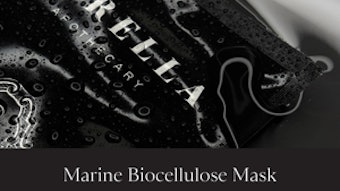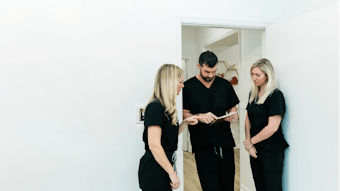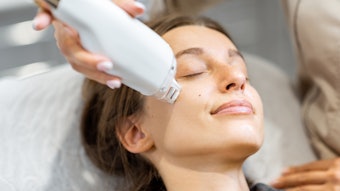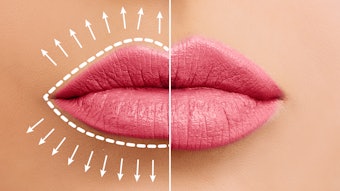
When it comes to being a part of the spa and medical spa industries, integrity is a shining factor that is a necessity for a successful business. This is why Myla Bennett, M.D., plastic surgeon, owner and founder Ederra Bella Plastic Surgery, isn't afraid to say no to her clients if she feels their reasoning or understanding isn't right for what they are asking for. Bennett chooses to educate her clients on what is best for their skin goals. Skin Inc. sat down and chatted with Bennett to learn more about the moral code she made for herself when opening her own practice, which often has her leading clients toward skin care instead of surgery.
Skin Inc. (SI): How did you get started in the skin care industry?
Myla Bennett (MB): When I was in my fellowship in esthetic surgery, that was when I first developed my love for skin. The Obagi representative came into the office and gave me a Nu-Derm kit, and my face started peeling off like crazy for the first month. Every time I would go into a patient room, I would explain how I just started a skin care regimen, which was why my face was peeling. Every time I said that, people would ask me what I was using on my skin, and I started selling all of these Nu-Derm kits.
That's kind of how it all started. When I graduated my fellowship and went off into solo practice, I started to learn more about some of the treatments because I couldn't do them on myself. That's when I started to get into the medical spa services to keep my skin looking youthful, and it all stemmed from my desire to take care of my own face. I would say that half of my practice is actually skin and the other half is surgery.
SI: Why did you decide to open your practice?
MB: I opened my own practice because I don't like people telling me what to do. When I started my first job, I felt really restricted. If I had an idea, I wanted to be able to execute it without having to a wait through time-consuming board meetings, which essentially were just giving me permission to follow my dreams. I worked for three years as an employee plastic surgeon, and when my contract was up, I just jumped and decided to go out on my own. I felt like I couldn't grow while I was bound to contracts and jobs.
SI: I know you have a moral code when it comes to choosing your clients. How do you go about choosing clients in your practice?
MB: When people come to me for a consult, it's an interview for both of us. Once I cut you, I have to take care of you. So, if you and I don't mesh well, that could be a problem. It's not often that I deny someone; I'm not here to judge. Sometimes though, people will give you an energy that you feel like it won't work When that happens, I put it back on me in explaining how I do not believe I am qualified or the right person to do what they want.
However, I can still like a person and think that surgery may not be the right choice. What I'm really looking for is realistic expectations as well as their motivation behind getting the surgery. If I feel that they're getting it for approval from others, I will recommend them seeing a therapist before we proceed. I've done that a lot. If I feel that they are doing it because they're going through a huge life crisis, I will suggest waiting until they get through what they're going through before committing to surgery. I really try to get to know the patient and what their desires are and their goals and motivation behind the treatments.
From a medical spa standpoint, when I do happen to say "no" it's not the same type of no. Really, the only time I have said no is when clients are coming in requesting these treatments, and they are not on a medical grade skin care regimen. When they aren't on any kind of skin care regimen, it takes a lot more treatments to really see a difference. So, you have these women coming in expecting changes from one treatment, which won't happen if they aren't on the appropriate maintenance. If the client refuses to keep up with a regular skin care regimen, and they are seeking out these treatments that are actually causing injuries to the skin, I won't treat them. I'm not in this business to take money, I want to see your results with you.
SI: What are your thoughts on home care?
MB: I think it's more important than treatments. When new patients come in, I will ask them what their goal is with getting these treatments. Especially for women looking for Botox. I will explain to them how taking care of your skin will make them look the most youthful. If they still want the Botox, I will do it. Typically, those clients will walk out with a skin care regimen instead of a treatment though. It's a better use of their money, and it will get them closer to their actual outcome. While some of the treatments are really strong and clients will see some improvement, it won't be a lasting improvement. You want to be able to neutralize the toxicity from the sun as well as protect and block from the harmful rays, and that is what people need to be doing on a regular basis.
SI: What made you decide to start your own skin care line?
MB: This was something that I always dreamt of ever since I started skin. I didn't think I could make a product that would be as good as the ones I started off with, and I didn't want to create a skin care line that I wouldn't use myself. So, in the beginning, I kind of dragged my feet. It took about a year and a half of me looking for a company to help me come up with the formulations. Last spring, I found this company, and when I spoke with them and learned about their lab, I started feeling like this was the one. That's when we started coming up with formulations, and the next thing you know, I had my product line. They helped me with everything including branding and packaging, so I was able to get everything in one place. This made it easier for me to manage on top of running a busy practice and having three little kids. It was a long time coming, and it was something that made sense for me because I am so into skin. My line is very hydration driven, and they're easier to work with if you don't have someone to hold your hand and walk you through using them. I still carry some of the products from Dr. Obagi's line because he has so many products, so I fill the gaps in my line with the products in his.
SI: What do you think is important to run a successful med spa?
MB: One of the biggest challenges I have faced is a consistent, reliable team. I think it is important, as the owner of a medical spa, to be able to do any of the services that you offer. I know people that open medical spas because it looks like a cash cow where you can make a bunch of money. If you own the medical spa, and you can't do the services yourself and are reliant on outsiders to be able to do, and you will run into problems.
I think it's important that you are able to prescribe or recommend the appropriate products to your clients, as well. Sometimes people get nervous about that because they think people will say no due to the cost, so they shy away from it. Equally though, you also don't want to try and shove everything down someone's throat like a used car's salesman. If you're going to run a medical spa, you need to have integrity, be proficient in the services you are offering, be savvy with social media and branding to get clients in without them feeling sold to, and finally, I think it is important to use your own skin and face as a billboard for what you do.










